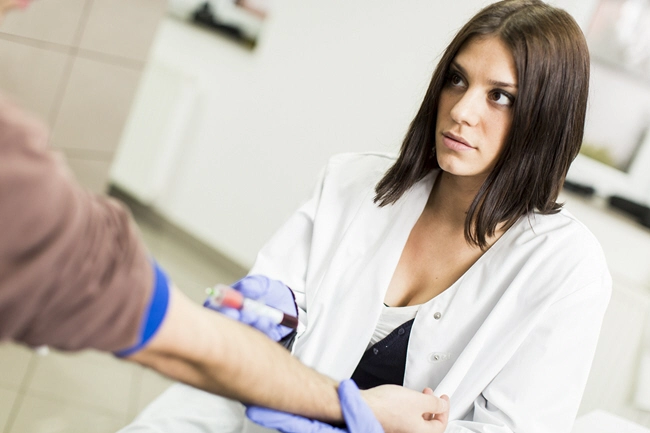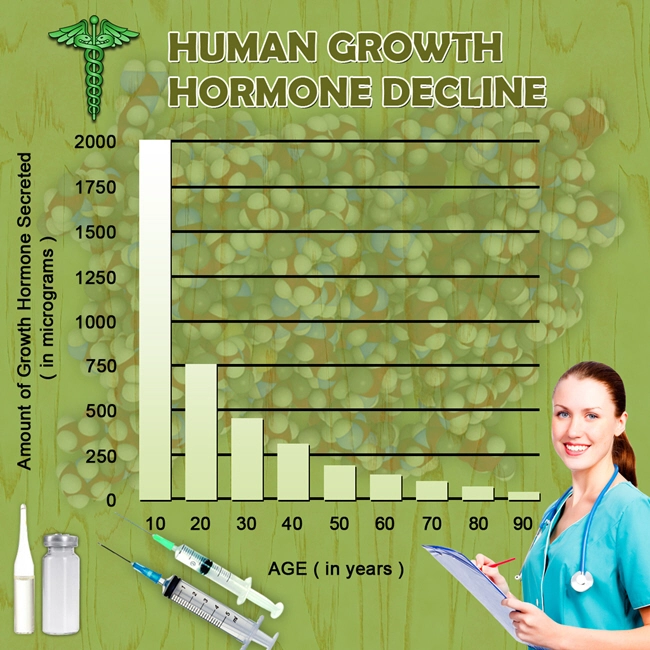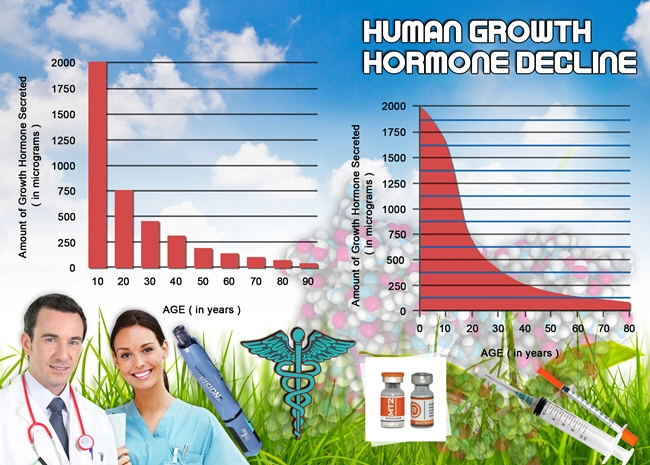Video Link: https://vimeo.com/286854211
Video Download: Click Here To Download Video
Video Stream: Click Here To Stream Video
To ensure that you receive the maximum benefit from your hormone replacement therapy, we complete a detailed review of your blood test. There are a number of reasons why bloodwork is so critical.
Remember, every individual is unique. Therefore, there is no “one-size-fits-all” or a “cookie-cutter approach that will work for everyone. We need to determine your current condition if we can proceed with your hormone treatment safely, what type of treatment will work best, and the correct dosage.
As an added benefit, we will share this information with you and explain in detail the vital roles that hormones, vitamins, minerals, blood sugar levels, and other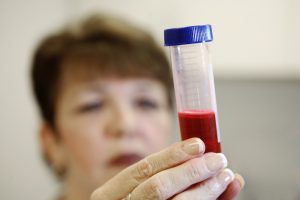 disease indicators play in your continued well-being.
disease indicators play in your continued well-being.
To determine all of these indicators requires a comprehensive blood test, but it pays for itself many times over. You will see precisely what is going on “under the hood” of your body and understand that this is a team effort to maximize your health.
We begin with hormones. There are three major aspects of aging: cognitive health, eyesight, and physical fitness, especially movement. Hormones play a critical role in all of these three conditions. All of the body’s hormones work together and this is why our hormone replacement protocols are comprehensive.
Next, we measure your levels of vitamins and minerals. To put it bluntly, you cannot reach and maintain maximum health with deficiencies of these crucial nutrients. We will address any abnormalities that show up in your blood test.
Finally, we test for several indicators of disease. The idea is to find a potential problem early on and correct it before it grows into a much more significant issue.
To accomplish this goal we will require a complete metabolic panel, a complete blood count, and a lipid panel. Let’s take a look at the various metrics in our blood test.
Comprehensive Male Blood Work Panel:
- Homocysteine, Plasma. High levels of homocysteine are associated with an elevated risk of heart attack, stroke, blood clot formation, and might be a precursor of Alzheimer's Disease. Also, abnormal homocysteine levels may indicate a vitamin deficiency or an elevated risk of developing certain illnesses, especially cardiovascular disease. A critical point to remember is that a high level of homocysteine is only an indicator of potential health issues but may not directly cause them to develop. Still, this metric should not be ignored and we will recommend treatments to correct it.
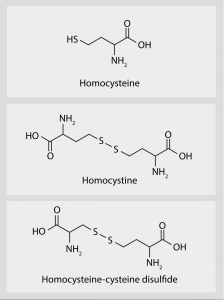
- Thyroid Panel with Thyroid Stimulating Hormone (TSH). When testing for thyroid functioning, physicians start with TSH. Consider TSH to be a barometer. If the TSH number is high, it is an indication that the thyroid gland is working harder than average, to maintain the correct level of thyroid hormone. In the worst-case scenario, this could be a precursor to a heart attack or other types of coronary artery problems called sub-clinical hypothyroidism (SCH).
- TSH Free T4 (thyroxine). T4 is the primary hormone produced by the thyroid gland. Its function is to navigate through the blood to particular targeted cells, then convert to triiodothyronine (T3). T4 is not as active as T3. A good analogy is this: T4 delivers the instructions from the thyroid, then T3 gets to work to carry out the mission. However, you need both T-3 and T-4 at optimum levels.
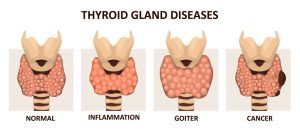
- Triiodothyronine, Free, Serum (T3). As mentioned in point number 3, T-3 (triiodothyronine) is the key to the health of your thyroid. The tri-iodothyronine, free, serum test measures the level of T-3 circulating in your body. T-3 is the gold standard of thyroid health.
- Lipid Panel With LDL/HDL Ratio. The lipid panel with LDL/HDL ratio test is a comprehensive cholesterol test that measures the proportion of the “good cholesterol” HDL and the “bad cholesterol” LDL. The levels of both these cholesterol types are reliable predictors of heart attacks. In addition to cholesterol, lipids include triglycerides.
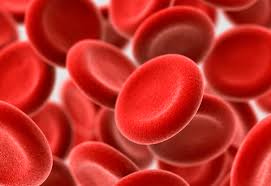
- Comprehensive Metabolic Panel. The metabolic panel test is a crucial, complete blood test. This test acts as an early warning system for severe diseases such as liver disease, kidney disease, and diabetes. The metabolic panel test also measures essential electrolytes (sodium, potassium, chloride, and CO2 (carbon dioxide and bicarbonate) and proteins (albumin and total protein), and blood glucose.
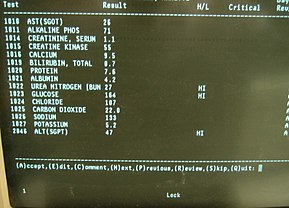
- Testosterone Free and Total. The testosterone-free and total test measures both “free” and “bound” testosterone. A little-known fact is that most of the testosterone circulating in the body is bound to proteins in the blood (SHBG and albumin)…as much as 96%. That leaves as little as 4% of the body’s
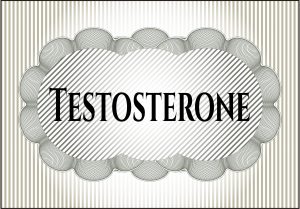 testosterone circulating as beneficial free testosterone. This condition must be addressed to ensure you receive maximum benefit from hormone replacement therapy.
testosterone circulating as beneficial free testosterone. This condition must be addressed to ensure you receive maximum benefit from hormone replacement therapy. - IGF-1. The IGF-1 test measures the amount of insulin-like growth factor in your blood. IGF-1 plays a critical role in controlling the function of human growth hormone. This test provides valuable information on your current levels of growth hormone.
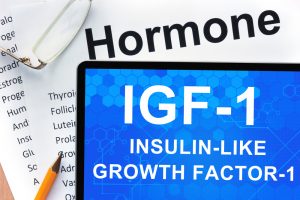
- FSH, LH. The Follicle-stimulating hormone (FSH), and the luteinizing hormone (LH) all play a role in the menopause puzzle and the menstrual cycle. The LH blood test measures the amount of luteinizing hormone in your blood and is essential to men as well as women for fertility. This rest measures the communication between the brain and the testicles and instructs the testicles to manufacture sperm and testosterone. These functions must be operating smoothly for you to receive the maximum benefit from testosterone treatment. An FSH test is given for the same reasons as the LH test.
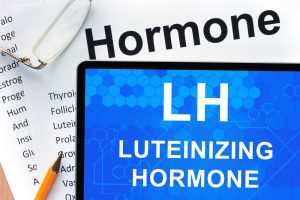
- Estradiol. This test is just like it sounds: a measurement of the estradiol levels in your blood. Why is this important? Because Estradiol is a female sex hormone produced by the ovaries and plays several vital roles in a woman’s internal body processes. However, high estradiol levels in a man's body can wreak havoc. Excess fat, loss of muscle mass, fatigue, and development of breasts are a few of the unpleasant results of excess estradiol. However, it is possible for men to suffer from too little estradiol. This test will allow us to maintain a proper balance of this hormone.

- CBC With Differential/Platelet. This test screens for anemia, and can also detect infections. The CBC covers everything related to your blood: both red and white blood cells, platelet levels, hematocrit, and hemoglobin. This test is critical for people considering beginning a testosterone replacement regimen since long-term use of testosterone may cause the blood to thicken due to an increase in red blood cells. This issue is addressed by us both before you begin your testosterone therapy and continuing during your treatment to ensure that there are no blood clotting problems.
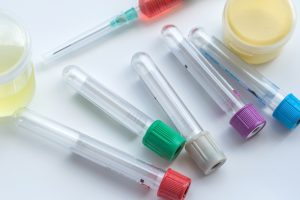
- Prostate-Specific Antigen (PSA) test. Prostate-Specific Antigen is a protein made by the cells in the prostate gland. This test measures the levels of PSA in a man's blood. Rising levels of PSA may be an early indicator of prostate cancer and warrant further testing.
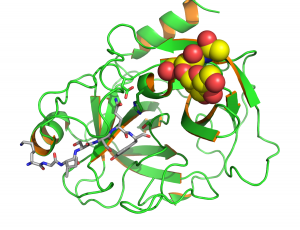
- Cortisol. Cortisol is the so-called “stress hormone.” As the name implies, stressful situations result in a blast of cortisol. This release served us well in caveman times when we had to go into “fight-or-flight” mode in a
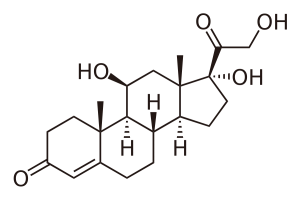 second to avoid a Saber-toothed tiger or battle another tribe. But we are not designed to deal with traffic jams, constant lack of sleep, demanding bosses and annoying co-workers, and the continuous noise of contemporary society. Excess levels of cortisol result in a broad range of adverse health consequences, some potentially severe. Cortisol can increase body fat and make losing weight far more challenging. High levels of this hormone can also wreak havoc on your libido, cause high blood pressure, weaken the immune system, and elevate blood sugar levels. If your levels are in the danger zone, treatment may be needed.
second to avoid a Saber-toothed tiger or battle another tribe. But we are not designed to deal with traffic jams, constant lack of sleep, demanding bosses and annoying co-workers, and the continuous noise of contemporary society. Excess levels of cortisol result in a broad range of adverse health consequences, some potentially severe. Cortisol can increase body fat and make losing weight far more challenging. High levels of this hormone can also wreak havoc on your libido, cause high blood pressure, weaken the immune system, and elevate blood sugar levels. If your levels are in the danger zone, treatment may be needed.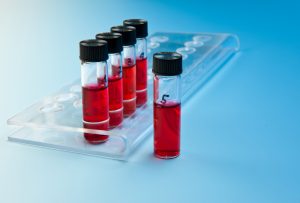
- DHEA Sulfate. Dehydroepiandrosterone (DHEA) is commonly and mistakenly thought to be a male hormone. But that’s wrong. Both men and women produce DHEA. Like so many hormones that play a vital role in our health, DHEA begins to drop around age 30 at a rate of approximately 10% per year. Too little DHEA can deplete our energy and cause weight gain. This test will determine how efficiently your adrenal glands are operating. When DHEA levels are functioning correctly, free testosterone converts more easily, inflammation is controlled, muscle mass may increase, and cognitive function becomes sharper.
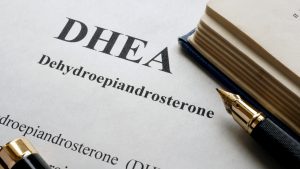
- Hemoglobin A1C. The hemoglobin A1C test measures your blood sugar levels over the last 2-3 months and is an excellent diabetes screen. If your blood sugar is in the diabetic range, don’t panic! Our treatment regimens can slow it down, then normalize it.
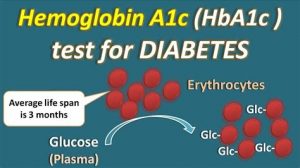
- Insulin, Fasting. The fasting insulin level test is a useful tool in the diagnosis of metabolic syndrome and prediabetes. As the primary source of energy in the body, insulin transports glucose (sugar) from the blood to the cells, where it is converted to energy. When your insulin levels are high, you may be suffering from a condition called insulin resistance. This debilitating affliction can lead to all types of complications. Again, we will ensure that this problem is controlled before we begin any testosterone treatment.
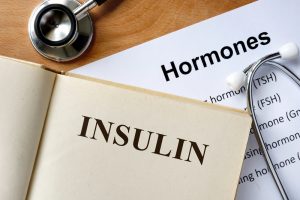
- Ferritin, Serum. The Ferritin Serum test checks your iron levels by measuring the amount of ferritin in your bloodstream. Ferritin is a blood cell protein that stores iron. If your levels are too high or too low, further testing will be required to determine the cause. An iron deficiency may cause anemia (a drop in your number of red blood cells).
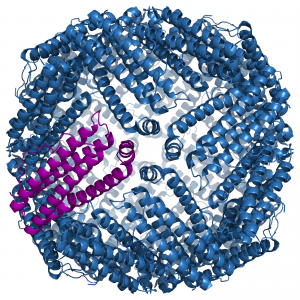
- SHBG. The sex hormone-binding globulin (SHBG) measures the levels of SHBG in your blood. This test is given in conjunction with a total testosterone level test to determine if your levels of testosterone are abnormal (high or low). This hormone is especially significant since it holds the key that unlocks your bound testosterone and turns it into free testosterone. Free testosterone then springs into action and delivers all of testosterone’s many benefits. If your levels of SHBG are elevated our regimens will work to lower it and allow testosterone to work its transforming magic!

- Dihydrotesterone (DHT). DHT is a sex hormone created by testosterone. It is vital to measure the level of this hormone since the higher the level of testosterone, the more DHT, and that could mean hair loss for men. If this becomes a problem a dihydrotestosterone inhibitor may be needed to reduce the hormone to a normal level.

- Progesterone. Progesterone has long been considered a female issue since it plays a significant role in ovulation, pregnancy, and fertility. However, men need to pay attention to this hormone as well, since it is a precursor (something that precedes something else) to testosterone and is beneficial
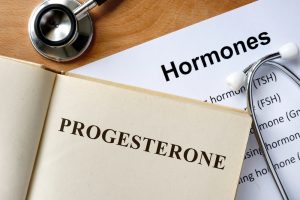 to a man’s libido. Also, progesterone can block the effects of estrogen in men that results in Gynecomastia (“man boobs”) and weight gain.
to a man’s libido. Also, progesterone can block the effects of estrogen in men that results in Gynecomastia (“man boobs”) and weight gain. - Vitamin D. The “sunshine vitamin” is actually a hormone and can lower the amount of SHBG in your blood. As mentioned
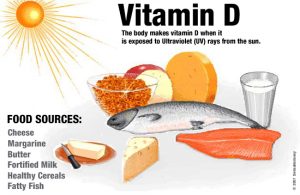 earlier, this will free more testosterone. Vitamin D also strengthens the immune system and lowers inflammation. This is a critical metric for all-around health, and we will recommend what to do if you are vitamin D deficient.
earlier, this will free more testosterone. Vitamin D also strengthens the immune system and lowers inflammation. This is a critical metric for all-around health, and we will recommend what to do if you are vitamin D deficient. - Vitamin B-12. The formation of red blood cells and the optimal function of our nervous systems depend on adequate amounts of this vitamin. A deficiency of B-12 is considered by many to be one of the most common vitamin deficiencies in the world. If you are experiencing chronic low amounts of B-12 the damage can quickly spin out of control and result in permanent damage to the nervous system and the brain. In this case, the wrong type of B-12 can make a bad situation worse. We will give specific guidance on this vital topic.

- Magnesium. Magnesium has been described by many nutritionists and research scientists as “the miracle mineral.” And there is a broad range of reasons why. The mineral plays a crucial role in the regulation of more than 300 enzyme systems that control nearly every significant body function. If you are deficient in magnesium we will give nutritional recommendations and advice on the types of magnesium supplements that will work best for you.
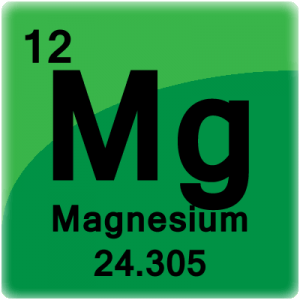
- Homocysteine, Plasma. High levels of homocysteine are associated with an elevated risk of heart attack, stroke, blood clot formation, and might be a precursor of Alzheimer's Disease. Also, abnormal homocysteine levels may indicate a vitamin deficiency or an elevated risk of developing certain illnesses, especially cardiovascular disease. A critical point to remember is that a high level of homocysteine is only an indicator of potential health issues but may not directly cause them to develop. Still, this metric should not be ignored and we will recommend treatments to correct it.
Hopefully, you can see why our blood tests go much further in-depth than average. We will ensure that you are more than prepared to experience the maximum benefits of our hormone therapy.
The cost of the comprehensive male blood work panel is $299. The price includes the prescription to get the blood drawn at LabCorp or Quest Diagnostics, the analysis of that blood work, and the Physicians evaluation of the results (No Hidden Costs).
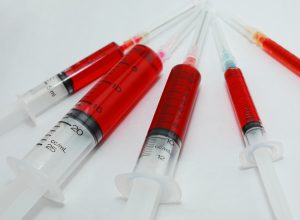 Email or Fax Test Results When sending results either by email or by fax, you must give us a call so we can verbally confirm that we have received the results.
Email or Fax Test Results When sending results either by email or by fax, you must give us a call so we can verbally confirm that we have received the results.
Privacy Policy: All of the data that you send to us regarding your blood testing is entirely confidential and will only be used to provide you with high-quality service. We will not share your information with any uninvolved third party.
If you receive this email or fax in error and are not the intended target or the individual responsible for the delivery of this information, you should be informed that any copying, printing, forwarding, dissemination, or use of this data is entirely prohibited. If you do receive this information unintentionally, please disregard the contents and contact us immediately.
Contact us for a FREE, no-obligation discussion concerning the benefits of HGH restoration.
Reference
Analysis of blood chemistry and hearing levels in a sample of older persons.
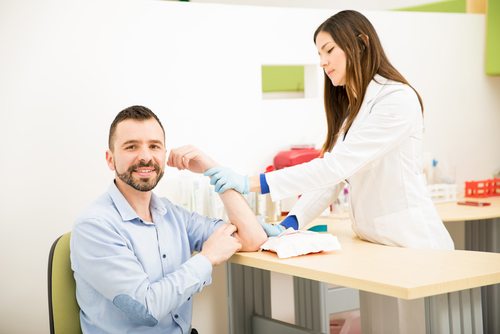
Contact Us Today For A Free Consultation
Dear Patient,
Once you have completing the above contact form, for security purposes and confirmation, please confirm your information by calling us.
Please call now: 1-800-380-5339.
Welcoming You To Our Clinic, Professor Tom Henderson.

